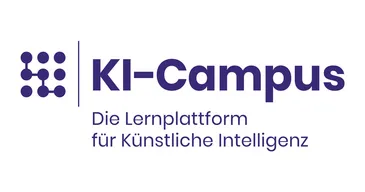AI-Campus Hub Baden-Württemberg

Initial Situation
Many factors are essential for successfully implementing artificial intelligence (AI) applications. These include the availability of suitable data, access to computing power, organizational and cultural factors such as openness and interdisciplinarity, but also the necessary professional and technical skills. However, the mere ability to implement AI applications is not enough to use them in a value-creating way and turn them into sustainable economic success. Like any other technology, AI is not an end in itself but requires a suitable field of application to generate benefits and a suitable business model so that companies can profit from it.
The AI Campus is an innovative learning platform that provides free access to a wide range of educational resources focusing on AI, such as online courses and podcasts. To extend the AI campus research project and to strengthen Baden-Württemberg’s position as a thriving AI innovation location, the AI Campus, led by the Stifterverband and supported by the Dieter Schwarz Stiftung, develops a regional hub to foster knowledge exchange and drive advancements in the field of artificial intelligence.
We contribute to the AI-Campus Hub Baden-Württemberg by extending the available educational offerings in basics of AI, exemplary application fields, or technical implementation aspects with the two online-courses “Identification of suitable AI application fields” and “AI-driven business models.”
Project Aim
This project aims to support the development of the AI Campus hub Baden-Württemberg by designing, implementing, and providing two courses on the AI-Campus platform, which covers the topics “Identification of suitable AI application fields” and “AI-driven business models.” The two planned modules are intended to offer companies, especially those from the Heilbronn-Franken region, an opportunity for advanced training and continuing education in these subject areas. Both modules aim to support companies in combining their existing strengths with AI in a meaningful way and to turn AI applications into sustainable economic success by conveying the relevant fundamentals and methodological knowledge.
Realization
An iterative approach is chosen to develop the two modules, “Identification of suitable AI application fields” and “AI-driven business models.” A core component of the iterative approach is the evaluation of the two modules, particularly in regional companies, to ensure the quality of the educational offering and ascertain whether it is appropriate for the intended target group. The collaboration and close coordination with the relevant regional actors, such as the Innovation Park AI (IPAI) and the partners in the AI-Campus-Hub Baden-Württemberg, helps ensure the coherence of the modules and enables their sustainable use and embedding in the region.
Value
The modules are intended to provide practitioners and managers with further training and education opportunities. The module “Identification of suitable AI application fields” is intended to teach the necessary competencies and knowledge to find suitable AI application fields in existing organizations. In addition, the module “AI-driven business models” seeks to transfer the competencies and knowledge on turning AI-based solutions into economic success through suitable business models, which is of central importance for both existing established companies and start-ups. Both modules intend to sustainably strengthen the ability to innovate through AI.
Project Partners
- Technische Universität München
- Stifterverband
- Dieter Schwarz Stiftung
- Duale Hochschule Baden-Württemberg Heilbronn
- Duale Hochschule Baden-Württemberg Karlsruhe
- Hochschule Heilbronn
- Fraunhofer IAO
- Innovation Park AI (IPAI)
Additional Information
Contact
Prof. Dr. Helmut Krcmar
Timo Böttcher, M. Sc.
Felix Straub, M. Sc.
Michael Weber, M. Sc.